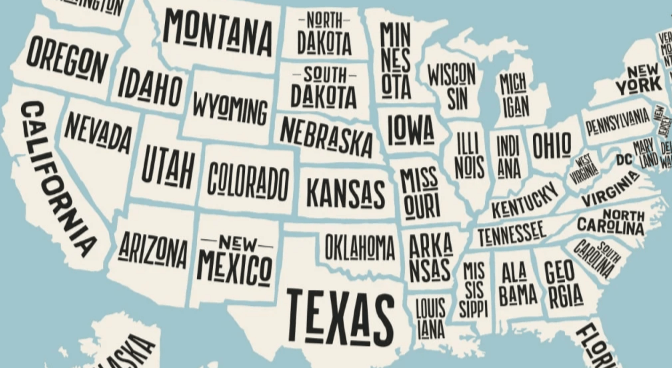Comparing Rates: How to Find Affordable Workers’ Comp Insurance Companies

Table of Contents
- Understanding Workers’ Comp Insurance Costs
- Securing Reasonable Workers’ Comp Premiums
- The Importance of Safety Programs
- Seeking Professional Advice
- State-Run Insurance Funds as an Alternative
- Leveraging Industry Associations
- The Value of Annual Policy Reviews
- Claims Impact on Future Premiums
- Using Online Tools
- Making an Educated Choice
Key Takeaways:
- Deep dive into the factors influencing workers’ comp insurance rates and how to understand them.
- Strategies for business owners to compare and select the most suitable and affordable insurance.
- Exploration of alternatives and additional resources for optimizing insurance decisions.
Understanding Workers’ Comp Insurance Costs
Facing the complexity of workers’ compensation insurance can be daunting for any business owner. It is critical to a business’s financial plan and risk management strategy. Premiums are primarily based on the classification of occupational hazards, with industries such as construction or forestry paying higher rates due to greater risk. Additionally, insurers will consider a company’s claims history, payroll size, and even workplace safety programs when calculating rates. A diligent examination of these factors is required to uncover plans that provide the necessary coverage at the most favorable pricing.
Securing Reasonable Workers’ Comp Premiums
Business owners frequently search for affordable workers’ comp insurance company that provide consistent coverage. The workers’ comp insurance market is vast, with different providers catering to various business sizes and types. To find the best insurance provider for your workplace, you should compare the offerings of various providers at both national and local levels. This will help you find companies with affordable rates and extra services like loss prevention, claims support, and flexible payments. These features can help reduce overall costs and prevent workplace accidents, leading to long-term savings on premiums.
The Importance of Safety Programs
Evidence shows repeatedly that implementing a proactive workplace safety program significantly reduces the incidence of job-related injuries. Insurers recognize this fact and often provide discounted rates to businesses with well-documented safety protocols. Initiatives such as consistent employee training, emergency preparedness, equipment maintenance, and a dedicated safety officer can minimize costs. Safety is an investment in employee well-being and risk reduction, which can lead to lower insurance rates.
Seeking Professional Advice
Despite the available information, the intricacies of workers’ comp insurance can take time to navigate. Many businesses turn to insurance brokers or agents to streamline the process and make informed decisions. These professionals assess a company’s needs and shop the market to find suitable coverage at competitive rates. They can interpret the fine print and negotiate terms, resulting in substantial financial savings for businesses, especially when adjustments or claims arise. Sometimes, these professionals can leverage their industry networks to provide coverage options that might be less widely advertised or available.
State-Run Insurance Funds as an Alternative
It’s often assumed that private insurers are the only option for workers’ comp insurance, but many states in the US offer an alternative in the form of state-run funds. These funds provide a safety net for high-risk businesses with potentially lower rates. It’s essential to assess such options carefully, as they can vary by state and may offer advantages over private competitors, especially regarding stable rates and reliability.
Read also Blossoming Metropolis: The Role of Landscaping in Dubai’s Growth
Leveraging Industry Associations
Membership in industry associations can have an array of benefits, one of which may include access to customized insurance products. These organizations often negotiate insurance plan on behalf of their members, enabling them to offer lower group rates. Moreover, these plans frequently come with enhanced industry-specific coverages, which could provide additional protection tailored to a business’s particular operations. Exploring these opportunities can thus lead to significant cost reductions on workers’ comp insurance premiums.
The Value of Annual Policy Reviews
Businesses constantly change and evolve, affecting their insurance requirements and associated costs. Therefore, it is necessary to review policies periodically to ensure that the coverage aligns with the company’s risk profile and payroll obligations. These reviews can lead to adjustments in premiums, ensuring that businesses pay for the coverage they need, not more or less. Regular assessments of policies prevent over-insurance, which can silently damage the company’s financial performance.
Claims Impact on Future Premiums
Insurance claims can have a significant effect on future premiums for businesses. The frequency and intensity of claims are crucial in determining the insurance cost. Companies that handle claims carelessly and prioritize loss prevention measures will likely enjoy lower insurance costs. Insurance companies view such businesses as low-risk clients. On the other hand, firms with a history of frequent or severe claims may face increased insurance rates. Insurance companies perceive them as high-risk clients. Therefore, businesses must take steps to prevent losses and handle claims efficiently to keep insurance costs low.
Using Online Tools
In the current era of technology, numerous online resources are available to help business owners find appropriate workers’ compensation insurance. These platforms provide convenient access to vast information, including industry trends and rate comparisons. The convenience of these tools simplifies the research process and enables business owners to review and consider various options quickly. The Insurance Information Institute is an excellent resource that provides a wealth of information, including guidance on selecting the right insurance policy. It can significantly assist business owners in making more informed decisions.
Making an Educated Choice
Selecting the appropriate workers’ compensation insurance provider is a crucial business decision that involves evaluating several factors reasonably. It is not just about discovering the cheapest premiums; it’s about obtaining coverage that suits your business’s distinctive risks and operational requirements. To ensure you make the best possible decision, it is necessary to stay updated on insurance market trends, review policy details annually, engage with professional advisors, and take advantage of available resources such as industry associations and digital tools.



